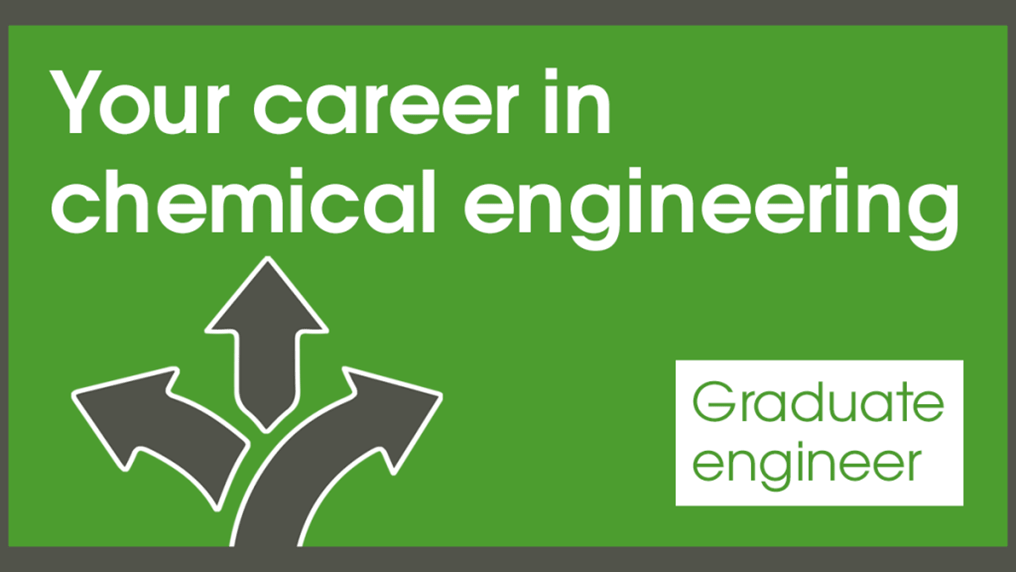Your career in chemical engineering – Graduate engineers

1st November 2021
If you’re graduating or at an early stage in your career, finding the sector and job that will set you onto your career path may feel daunting given the diverse opportunities available in chemical engineering.
This six-part blog and video series, Your career in chemical engineering, gives an insight into how 18 of our members got to where they are in their career today, the key engineering skills that have helped them succeed and practical tips for job hunting.
For this blog, we spoke to recent graduates Emma Claxton, Nikita Javale and Robyn Mayne for more on their experiences in pharmaceuticals, energy and dairy, respectively.
Finding the right role for you
Emma Claxton
Emma is a Process Engineer at PM Group, based in the UK, a project delivery specialist and builds facilities for their clients in a number of sectors including pharmaceuticals, medical technologies, and food and drink.

She works on feasibility studies through to detailed design phases of engineering projects.
She gained her role after establishing a connection with a PM Group employee who was giving a career talk at the University of Nottingham in her final year of her chemical engineering degree. She was one of few people regularly raising her hand keen to ask questions about a career at the company. This worked in her favour as the speaker suggested chatting after the session, and thereafter was made aware of an upcoming opportunity.
Nikita Javale
After completing her chemical engineering degree from the Indian Institute of Technology Roorkee, Nikita Javale became a Process Engineer at Shell, India. She supports Shell’s energy business providing asset support for liquefied natural gas (LNG) across Asia Pacific. Her day-to-day job spans from doing process design and technical integration to handling site process safety issues.

Determined to join the company and help its transition to cleaner energy supply she admits: “The journey wasn’t an easy one – I joined Shell at a time the oil and gas industry was at a dip and recruitment chances were bleak.”
Joining via the company’s assessed internship programme, three years on, she’s travelled to, and worked with, teams across the globe, helped drive STEM initiatives, and led in-house graduate groups.
In this time, she’s learned “you don’t have to fit a pre-set mould to succeed”. She added: “There is a strong culture for support and space to innovate in our industry. We should all have confidence in ourselves and work passionately.”
Robyn Mayne
For Robyn, perseverance was key in establishing her first job after studying Materials and Process Engineering at the University of Waikato, New Zealand.

She wasn’t dismayed after applying for more than 10 internships in various sectors and unfortunately being rejected by the majority. In fact, she was delighted to be offered an internship with PDV Consultants, as working in the dairy industry was her true passion.
She completed the internship and asked for an opportunity to work part-time in her final year of university. While there she was focused on gaining knowledge and experience, and making a good impression. After completing her degree, she was thrilled to be offered a full-time graduate position.
Now as Process Project Engineer, Robyn works on process and manufacturing projects in the dairy industry, from the design phase through to installation.
Overcoming challenges
Once you’ve found a job, you’re underway with learning the culture, the work routines, programmes and finding the best ways to take projects forward. This doesn’t come without challenges.
The transition from a university environment to the working world was something Emma and Robyn have been learning to adapt to; understanding the shift from university timescales to work deadlines, utilising appropriate resources and knowing who to ask for the help you need. Emma said this comes with time and practice.
“At the beginning it was learning the new lingo. There were so many different acronyms and new words that I hadn’t learnt in uni, so that was a challenge,” said Robyn.

Emma added: “Something I found quite challenging was coming from university where the male to female split was less obvious and coming into an industry where historically it’s been perceived as a more male-dominated environment and understanding that to tackle that we need to start at the bottom and get more girls interested in engineering from a young age.
“I’ve recently joined my diversity and inclusion team for the UK and from that I’m hoping to make a subgroup in the UK for women in engineering, so we can go out to schools more often, with an emphasis on encouraging the female engineers of the next generation.”
Advice to graduates seeking a role
Nikita remains optimistic about the future for all chemical engineers, particularly those in sectors such as oil and gas which are undergoing major changes.
“The role of a future engineer will transform, but won’t be replaced,” she said. “As we venture from conventional engineering techniques to innovative design solutions to optimize the ecosystem, we need to upskill ourselves.
“This indeed means that we need people with skills required for the existing technologies and processes as much as the new ones. We need to focus on building 'transferrable skills'- those which can be transformed or transitioned into alternative lines of businesses for the future. I feel the core knowledge will remain the same, its form of application will evolve with the industry.”

Any tips you’d advise someone seeking a job?
“Don’t be afraid to apply for internships as this gives you a good idea of what the job is actually going to be like,” said Robyn. “It’s also a chance to make good connections in the industry as well."
Emma said: “LinkedIn is also a really powerful tool. It's about getting your LinkedIn up-to-date and it’s looking at those roles, may be even not being afraid to contact people within that business and asking more.”
Graduate engineers: video
Watch this video to learn more from Emma, Nikita and Robyn on what they enjoy about their roles, their advice to those going through interviews and assessments, and how IChemE has supported their career aspirations.
Look out for other blogs in the Your career in chemical engineering series and see the full video playlist on our YouTube channel.
For more career resources at an early career level or to help with skills transition and professional development, visit www.icheme.org/career.